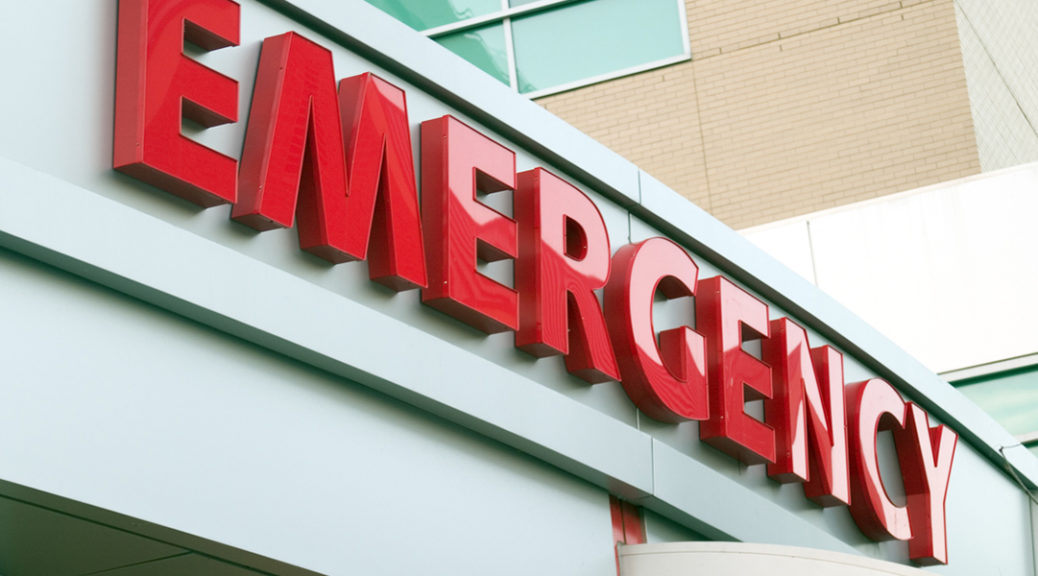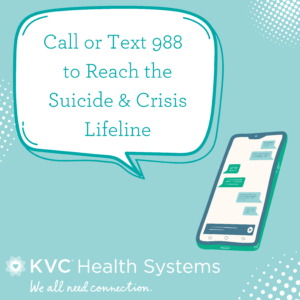What Does a Mental Health Crisis Look Like?

Unfortunately, none of us have to look very far to find someone who has been impacted by suicide or a mental health crisis. Studies as recent as 2023 show suicide as the second leading cause of death in the U.S. for teens and young adults ages 10–34, and the fourth leading cause of death for teens 12–19 years of age.
Why is the number of suicide cases for teens and young adults on the rise? What’s driving these staggering statistics? To find this answer, we must look at suicide as the result of a mental health crisis.
According to Mental Health America, 16.4% of teens from ages 12 to 17 experienced a severe mental health condition at some point in the last year. And of those with major depression, an average of 59.8% didn’t receive mental health treatment. With numbers like these, it’s clear that the risk of suicide for people with mental health needs is a major concern.
Learn about the 5 things every child needs for good mental health here!
One of the most common comments we hear at our children’s psychiatric hospitals is that the families and friends of people who are admitted didn’t realize their loved one was going through a crisis. But with an understanding of what a mental health crisis looks like, it’s easier to see the signs and become an ally for those who are struggling. Let’s explore how to recognize when a person is experiencing a mental health crisis, and what it looks like to provide support.
What is a Mental Health Crisis?
 A mental health crisis is any situation in which a person’s actions, feelings and behaviors can lead to them hurting themselves or others, or put them at risk of being unable to care for themselves or function in the community in a healthy manner. A wide variety of situations can lead to a mental health crisis, but some of the most common include stress at home, conflicts with loved ones, exposure to trauma, PTSD or experiencing violence. In addition, a mental health crisis may also occur when someone is experiencing stress at school, work or other environments.
A mental health crisis is any situation in which a person’s actions, feelings and behaviors can lead to them hurting themselves or others, or put them at risk of being unable to care for themselves or function in the community in a healthy manner. A wide variety of situations can lead to a mental health crisis, but some of the most common include stress at home, conflicts with loved ones, exposure to trauma, PTSD or experiencing violence. In addition, a mental health crisis may also occur when someone is experiencing stress at school, work or other environments.
Larger trends are also contributing to the rise in suicide, including:
- Heightened isolation and disconnection, including our national epidemic of loneliness
- Limited access to physical and mental healthcare, with approximately one in five adults experiencing financial or non-financial barriers to care
- Increased reliance on technology and social media
- Perfectionism and increased societal pressure for achievement
- The rise in opioids for pain management
Individuals with a mental illness diagnosis are at greater risk of experiencing a crisis. But too often, a crisis occurs before a mental illness has been officially diagnosed.
“We have to remember that mental illness is a physical condition,” says James Roberson, Senior Vice President at KVC Missouri. “When crisis strikes, it’s not a switch that can be turned off. The body and brain may be working against our own goals and desires. Seeking professional help is the safest way to address the underlying medical issues. Once addressed other therapies and treatment services can be used to prevent future crises and address underlying issues.”
Signs of a Mental Health Crisis
Just as no two people are the same, no two mental health crises look the same. But there are some signs to watch for if you suspect someone might be in crisis, and what a crisis may look like:
- Inability to complete daily tasks: A person may struggle with things that are part of their typical routine. This can include getting dressed, brushing teeth, bathing, eating regular meals, etc.
- Communicating thoughts of self-harm: Verbally saying, writing or insinuating that they’re thinking about killing themselves, harming themselves in some way or discussing death
- Withdrawal: Disengaging from friends, family, activities they previously enjoyed and their typical social situations
- Excessive worry, fear or panic: Uncharacteristically strong anxiety
- Abnormal or impulsive actions (or threats of action): Showing impulsive or reckless behavior, reacting with aggression or acting out of character
- Shift in everyday patterns: Experiencing dramatic shifts in mood, sleeping or eating patterns
Taking a Proactive Approach
Taking proactive steps to prevent a mental health crisis can save lives. For parents and caregivers, make it a point to keep open lines of communication with your child. Talking to children about mental health and suicide makes sure they know you’re a safe and trustworthy resource if a crisis arises.
A crisis preparedness plan is also ideal to have in your mental health toolkit. According to the National Alliance on Mental Illness, being prepared in advance for a mental health crisis and sharing that plan with your loved one can help to avoid a crisis. At KVC, we’ve selected the Stanley-Brown Safety Plan because of its evidence-based research and well-documented success.
Here are the things you can discuss and information you can gather to create a preparedness plan — either for yourself or for a loved one who’s struggling:
- Compile a list of emotional and verbal triggers that typically affect your loved one, as well as warning signs
- Identify family members and friends who can be available for help and to support the person in crisis
- Gather phone numbers and names of the person’s primary care doctor, psychiatrist, therapist and other healthcare providers
- Compile a list of any medications and diagnoses
- Share any history of drug and/or alcohol use you’re aware of, plus any history of psychosis or suicide attempts
- Consider things that have helped to stabilize and regulate the person in the past
- Remove weapons, medications that are not prescribed, and items that can cause risk to their life
When a crisis is imminent, you’ll need to decide who to call for help:
 If the person is an immediate danger to themselves or someone else, call 911 quickly and let them know you are with someone experiencing a mental health crisis.
If the person is an immediate danger to themselves or someone else, call 911 quickly and let them know you are with someone experiencing a mental health crisis. - The Suicide and Crisis Lifeline is available 24/7 by calling or texting 988. They will be able to provide advice and help with crisis services. Just like we call 911 for immediate assistance with fire, health or safety emergencies, 988 is a resource for immediate mental health emergencies, people at risk of suicide and other crises.
- If you can, reach out to the individual’s therapist, doctor, or psychiatrist if they have one. You can also go to the local mental health center or emergency room to receive an assessment. This can be a community mental health center, emergency room or psychiatric treatment facility.
In the midst of the crisis, some techniques can help de-escalate the situation:
- Keep your voice as calm and even as you can, and move slowly.
- Actively listen to the person, with direct eye contact, nodding and kind body language.
- Respond reflectively to show the person that you hear and understand them.
In such an emotionally heightened and potentially dangerous situation, don’t try to handle it alone. If you know someone struggling with depression or experiencing thoughts of self-harm, get suicide prevention expertise by contacting our psychiatric hospitals at (913) 890-7468, or the Suicide and Crisis Lifeline at 988.
Related Resources
Mental Health Conditions and Disorders
What to Expect When Admitting Your Child to a Psychiatric Hospital
How to Promote Children’s Mental Wellness
Suicide Prevention Resources for Caregivers








